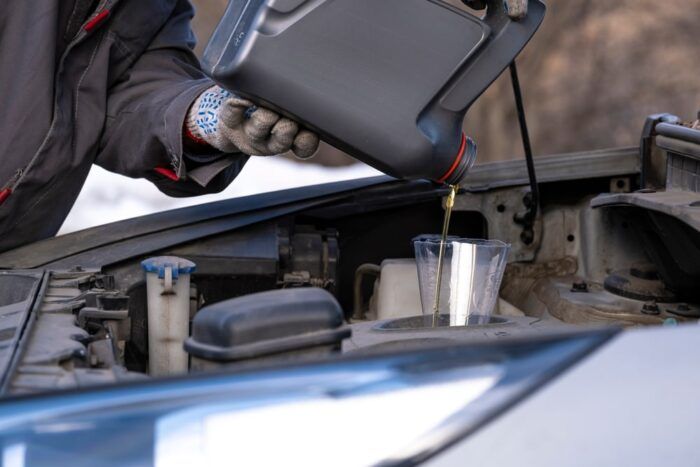
Maximizing Engine Longevity With Gas Engine Oil Additives
Maximizing the longevity of a gas engine is a goal shared by vehicle enthusiasts, fleet managers, and everyday motorists alike. A well-maintained engine not only runs more efficiently but also saves money on repairs and replacements. Gas engine oil additives have gained prominence in recent years as a tool to achieve this goal. These specialized chemical compounds, when added to engine oil and extend vehicle life, can significantly extend the life of a gas engine by reducing wear, preventing deposits, and enhancing overall performance. In this comprehensive article, we will explore the importance of engine longevity, the science behind wear and deposits, and how gas engine oil additives play a pivotal role in achieving this objective.

The Significance of Engine Longevity
Engine longevity, or the ability of an engine to operate reliably over an extended period, is a critical concern for various reasons:
Cost Savings: Replacing or rebuilding an engine is a substantial financial investment. Maximizing engine longevity can help delay or even avoid these costly expenses.
Reduced Maintenance Costs: An engine that runs smoothly and experiences minimal wear requires fewer repairs and maintenance, resulting in reduced ongoing expenses.
Environmental Impact:
Extending the life of an engine reduces the need for manufacturing new engines and disposing of old ones, contributing to a more sustainable approach to vehicle ownership.
Resale Value: Vehicles with well-maintained engines generally command higher resale values, making engine longevity a key consideration for those looking to sell or trade in their vehicles.
The Science Behind Wear and Deposits
To understand how gas engine oil additives contribute to engine longevity, it's essential to grasp the science behind wear and deposits in internal combustion engines:
Wear and Tear: Inside an engine, numerous metal components, such as pistons, crankshafts, and camshafts, move and interact at high speeds. This interaction generates friction and heat, leading to wear and tear on these components.
Deposits: Deposits are substances that can accumulate on engine components over time. Common types include carbon deposits (from incomplete combustion) and varnish deposits (from oil oxidation). These deposits can obstruct airflow, disrupt combustion, and lead to increased wear and reduced engine efficiency.
How Gas Engine Oil Additives Maximize Longevity Gas engine oil additives are formulated to address the challenges of wear and deposits by employing several key mechanisms:
Anti-Wear Additives: Anti-wear additives form a protective film on engine components, reducing friction and preventing metal-to-metal contact. This protective film minimizes wear and tear, extending the life of critical engine parts.
Detergents and Dispersants: Many oil additives contain detergents and dispersants that prevent and remove deposits. Detergents help clean existing deposits, while dispersants ensure that contaminants remain dispersed in the oil, where they can be safely drained during an oil change.
Friction Modifiers: Friction modifiers reduce friction between moving engine parts, leading to less wear and heat generation. By minimizing friction, these additives contribute to engine longevity.
Viscosity Index Improvers: Viscosity index improvers enhance the oil's viscosity-temperature relationship. This ensures that the oil maintains its optimal thickness (viscosity) across a range of operating temperatures, reducing wear and providing proper lubrication.
Anti-Oxidants: Anti-oxidants inhibit oil oxidation, preventing the formation of varnish deposits. By stabilizing the oil, these additives extend its useful life and preserve its lubricating properties.
Benefits of Gas Engine Oil Additives for Longevity
Using gas engine oil additives to maximize engine longevity offers several significant benefits:
Extended Engine Lifespan: By reducing wear and preventing deposits, oil additives help extend the operational lifespan of a gas engine, reducing the need for costly replacements or rebuilds.
Lower Maintenance Costs:
A well-maintained engine experiences fewer issues and requires less frequent maintenance and repairs, resulting in cost savings over time.
Improved Engine Performance: Engines treated with oil additives typically run more smoothly, with reduced friction and wear, resulting in enhanced performance and efficiency.
Reduced Environmental Impact: Extending the life of your engine contributes to a more sustainable approach to vehicle ownership, reducing the environmental impact associated with engine manufacturing and disposal.
Preservation of Resale Value:Vehicles with engines that have been well cared for and maintained tend to retain higher resale values, making them more attractive to potential buyers.
Maximizing the longevity of a gas engine is a prudent investment that pays off in terms of cost savings, reduced maintenance, and a smaller environmental footprint. Gas engine oil additives play a critical role in achieving this goal by reducing wear, preventing deposits, and enhancing overall engine performance. By incorporating these additives into your engine maintenance routine, you can enjoy a more reliable, efficient, and long-lasting gas engine, ensuring that your vehicle serves you well for years to come.